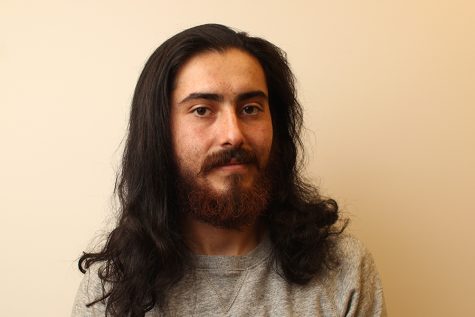Additions delay seismic retrofit
Late design tweaks halt Knox Center’s project until 2016
Apr 7, 2015
The Knox Center for the Performing Arts seismic retrofit project that was scheduled to begin during the summer will be postponed until 2016.
Buildings and Grounds Manager Bruce King said the project is being postponed due to recent changes to the project’s scope and budget.
The seismic retrofit project is being done to protect older buildings from the Hayward Fault, an active fault that geologist consider past due for a slip, which dissects Contra Costa College.
USGS geophysicist Jack Boatwright said there is a one in four chance that there will be a significant earthquake along the Hayward Fault in the next 30 years.
“If the buildings on (CCC’s) campus pre-date 1975,” Boatwright said, “that would imply that there is significant retrofitting that needs to be done.”
In a report prepared by Thornton Tomasetti Building Solutions, it states that the Knox Center was constructed from 1978-80.
King met with Critical Solutions Project Manager Ron Johnson, Michael Herman and Mike Cardellini, structural engineers from Thornton Tomasetti, drama professor John R. Morocco, Liberal Arts Division Dean Jason Berner and Business Services Supervisor Nick Dimitri at 9 a.m. on March 27 in the Knox Center’s green room to discuss the revisions to the project.
These include building a mezzanine, adding six wheelchair seats to bring the total to nine and remodeling the public bathrooms to comply with the Americans with Disabilities Act (ADA) of 1990 and adjusting stage prop’s storage areas, while also phasing out a electronic signage that will go on the exterior of the building to begin before the interior seismic work.
Johnson said, “The issue now is that (the structural seismic retrofits) will not happen until next summer because we are adding on a mezzanine and everything else has pushed the project start date back.”
Johnson said these additions to the project will raise the cost from $600,000 to about $1 million.
King said these tweaks still have to be approved by the California Division of State Architecture (DSA) and the district’s Board of Trustees before they can put the contract out for bid, which would be in late June.
Director of CCC’s Business Services Mariles Magalong said funding for the project is being allocated from the college’s general maintenance fund, which is granted annually by the state.
Magalong said prolonging the start of the seismic retrofit of the Knox Center will not affect the project’s funding because the money is already attached and will transfer over into the next fiscal year.
Johnson said, “When we resubmit the design to the people at the DSA for them review it, they do it on their own work schedule and it may take them four months. It has happened in the past and makes this summer an unrealistic target.”
Magalong said, “We are shooting for a May 4 (Governing Board) approval but that date isn’t set in stone.”
She said another reason for delaying the project is that the construction contract for the project still needs to put up for bid and it has to last long enough for multiple contractors to have enough time to respond.
Contra Costa Community College District Chief Facilities Planner Ray Pyle said the initial project scope was to start the Knox Center retrofits at the same time as the Custodial Building and Boiler Room retrofits as part the second phase of a four-part campuswide seismic retrofit effort.
Pyle said that the Alquist-Priolo Zoning Act of 1972 created a 2,000 square-foot zone on either side of an active fault line that restricts the construction of buildings until extensive geological studies are done at the site.
While the Knox Center rests on the South Western edge of the Alquist-Priolo zone, a CCC Seismic Evaluation and Retrofit Studies report prepared by Thornton Tomasetti in November 2010 places the building at a “questionable” Risk Level of IV out of VII.
Pyle said the Custodial and Boiler buildings seismic retrofit will begin during the Fall 2015 semester because the work will not disturb classes.
Critical Solutions, a project and construction management firm, was hired in 2013 to help oversee the various projects at the three colleges in the district and ensure that construction schedules do not conflict with the academic calendar.


